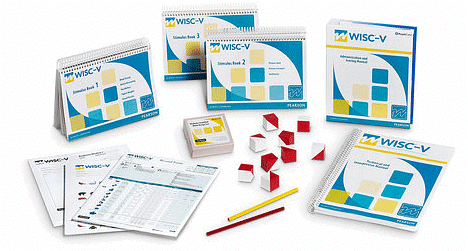Assessment of Intelligence | Psychology for UPSC Optional (Notes) PDF Download
| Table of contents |

|
| Introduction |

|
| History of Assessment of Intelligence |

|
| Individual Tests |

|
| Group Tests |

|
| Verbal and Nonverbal Tests |

|
Introduction
Intelligence assessment is a fundamental aspect of psychological evaluation and has significant implications in various fields, including education, clinical psychology, and employment. Assessing intelligence helps in understanding an individual's cognitive abilities, problem-solving skills, and overall intellectual functioning.
Intelligence tests provide standardized measures of cognitive abilities and are designed to assess various domains, including verbal reasoning, nonverbal reasoning, memory, and processing speed. These tests play a crucial role in identifying intellectual strengths and weaknesses, identifying learning disabilities, guiding educational interventions, and informing clinical diagnoses.
History of Assessment of Intelligence
The Binet-Simon Scale: The First Intelligence Test
Developed by Alfred Binet and Theodore Simon in the early 20th century, the Binet-Simon Scale aimed to measure children's mental age (MA) compared to their chronological age (CA). This test focused on identifying children with learning difficulties and intellectual disabilities by assessing their cognitive abilities and problem-solving skills.
The Revised Scales and the Advent of IQ
Lewis Terman revised Binet's test and introduced the Stanford-Binet Intelligence Scales, which included the concept of intelligence quotient (IQ). Terman's revision involved comparing an individual's performance to the average performance of their age group, resulting in a numerical representation of intelligence. The IQ score provided a standardized measure for comparing individuals' intellectual abilities and tracking their cognitive development over time.
Individual Tests
- Stanford-Binet Scale of Intelligence: The Stanford-Binet Intelligence Scales, currently in its fifth edition (SB-5), is a widely used individual intelligence test. It assesses cognitive abilities across various age groups and provides a comprehensive measure of intellectual functioning. The test evaluates both verbal and nonverbal reasoning, working memory, and processing speed.
- The Wechsler Scales: The Wechsler Adult Intelligence Scale (WAIS) and the Wechsler Intelligence Scale for Children (WISC) are among the most popular individual intelligence tests. They assess a wide range of cognitive abilities, including verbal comprehension, perceptual reasoning, working memory, and processing speed. The Wechsler tests provide separate scores for different cognitive domains and generate an overall IQ score.

- The Kaufman Scales: The Kaufman Assessment Battery for Children (KABC) and the Kaufman Adult Intelligence Test (KAIT) are individual intelligence tests developed by Alan and Nadeen Kaufman. These tests emphasize the cognitive processes underlying intelligence, including simultaneous processing, sequential processing, and planning abilities.
- Das-Naglieri Cognitive Assessment System: The Das-Naglieri Cognitive Assessment System (CAS) is an individual intelligence test that focuses on the cognitive processes involved in problem-solving. It measures planning, attention, simultaneous and successive processing, and cognitive flexibility. The CAS provides a profile of an individual's cognitive strengths and weaknesses.
Group Tests
- Advantages and Disadvantages of Group Testing: Group intelligence tests offer several advantages, such as assessing a large number of individuals simultaneously, cost-effectiveness, and efficient administration. However, these tests have limitations, including the potential for reduced individual attention, cultural biases, and limited ability to capture unique cognitive abilities.
- Examples of Group Intelligence Tests: Some examples of group intelligence tests include the Otis-Lennon School Ability Test (OLSAT), Cognitive Abilities Test (CogAT), and the Naglieri Nonverbal Ability Test (NNAT). These tests are often used in educational settings to assess students' cognitive abilities and inform placement decisions.
Verbal and Nonverbal Tests
Intelligence tests can be categorized as either verbal or nonverbal. Verbal tests assess an individual's ability to understand and use language, while nonverbal tests focus on problem-solving skills that do not heavily rely on language. Both types of tests provide valuable insights into an individual's cognitive abilities and can be used in combination to obtain a comprehensive assessment of intelligence.
- Culture-Fair Tests: Culture-fair tests aim to minimize cultural bias and ensure that individuals from different cultural backgrounds have equal opportunities to demonstrate their intellectual abilities. These tests attempt to assess pure cognitive abilities by reducing the influence of cultural knowledge, language, and experiences.
- Issues in Intelligence Testing: Intelligence testing is not without its controversies and challenges. Some of the key issues include the potential for cultural biases in test content, the influence of socioeconomic factors on test performance, the debate on the heritability of intelligence, and the ethical implications of intelligence testing in different contexts.
Conclusion
In conclusion, intelligence assessment plays a crucial role in understanding an individual's cognitive abilities and has significant implications in various fields. It has a rich history, starting from the Binet-Simon Scale to the advent of IQ and the development of various individual and group intelligence tests. Different types of intelligence tests, including verbal, nonverbal, and culture-fair tests, provide comprehensive assessments of cognitive abilities. However, intelligence testing also faces challenges and controversies that need to be addressed to ensure fair and accurate assessments of intelligence.
|
160 videos|215 docs
|



















